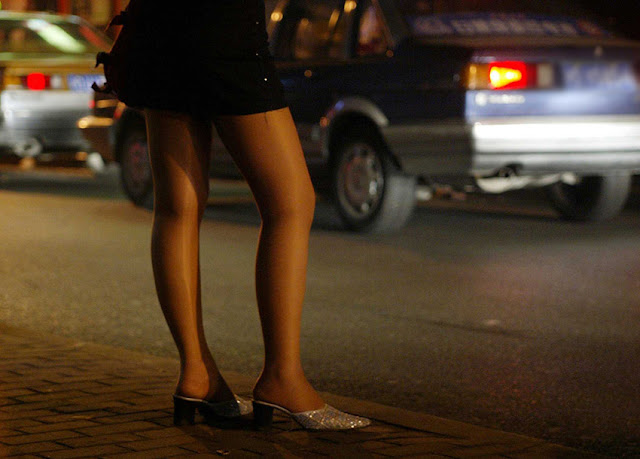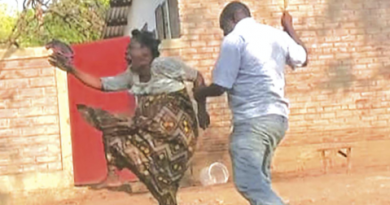Evils of teenage prostitution
By Grace Kapatuka
Teenage prostitution in Malawi is a serious concern, exacerbated by factors such as poverty, limited educational opportunities, and cultural practices. Many teenage girls, driven by economic necessity, may engage in sex work, often in exchange for basic needs like food or shelter.
Research indicates that a significant number of adolescents are involved in transactional sex, with urban areas showing higher rates due to greater anonymity and demand. The risk of exploitation, sexually transmitted infections, and unwanted pregnancies is high among these teens.
Teenage prostitution refers to the engagement of minors, typically aged 13 to 19, in sexual activities in exchange for money, goods, or services.
The trend is fuelled by growing numbers of unlicensed entertainment centres in many towns and cities who most of the times employ young girls to work as bar tenders or bar girl’s in order to attract male customers who in most cases are older than them.
According to Thokozani Ng’ombe the project delivery Lead for iHEARD project, a project of Farm Radio International, CODE, and Marie Stopes International that is being implemented by a variety of NGOs in Malawi, there is transactional sex which involves exchanging sex for money or favors, often driven by economic necessity.
She said some of the girls call such relationships with the term “blesser.”
“Blessers” are men who provide something to young girls, usually money or material goods. She described such kind of symbiotic relationship between the two people, with each getting something they need or want and giving something in return.
According to Ng’ombe others engage into prostitution through coercion and exploitation where some teenagers may be forced or manipulated into prostitution by adults, including traffickers or even acquaintances.
She says such girls are prone to exploitation and abuse, since the engage into sex with older men who always make demands on them and as young girls just follow the demands there by putting themselves at a risk of violence from clients or traffickers who threaten to deal with them when the demands are not met.

Youths trapped in prostitution are exposed to many dangers
Mirriam Chipisha a parent of Lilongwe said most teenagers engage in sex work to meet basic needs such as food, shelter, or other essentials, often due to poverty or family issues. She said such kind of behavior is common in boarding secondary schools and colleges where the girls have to live life on their own.
“Teenage prostitution around universities in Malawi is a growing concern, often linked to economic pressures, social dynamics, and the pursuit of financial support for education and living expenses,” she said.
She outlined factors like economic pressures, social dynamics, vulnerability and limited support services as contributing to increased cases of teenage prostitution.
“Many students face financial challenges, prompting some to engage in transactional sex to cover tuition fees, accommodation, and daily living expenses. Sometimes the university environment can expose students to various social pressures and expectations, which may lead to risky behaviors, including engaging in sex work.” she says.
George Kanyenda of Zomba said young women, in particular, may be more vulnerable due to societal norms that place a financial burden on them to support their education or families. He however said as a country there is need to offer counseling services and comprehensive programs that could help address issues related to sexual health, financial aid, and mental health saying such initiatives require comprehensive prevention and support strategies tailored to the needs of vulnerable youth
He added that what is worrying is that the trendexposes the young girls to serious implications such as contracting sexually transmitted infections (STIs) including HIV and AIDS, unwanted pregnancies and psychological trauma.
“We need more efforts by government and NGOs working to provide financial support, mentorship programs, and educational initiatives to empower students and reduce reliance on sex work,” said Kanyenda.
Many parents and gurdians are worried with the consequences which they described as being profound and far-reaching, affecting physical, emotional, and social well-being of the young girls.
Chifundo Nagoli of Mchinji said the young girls mostly engage themselves into unprotected sex posing themselves on a higher risk of unintended pregnancies, which can lead to additional social and economic challenges.
“This may result in many teenagers experiencing emotional trauma, anxiety, depression, and low self-esteem due to their experiences. As you can see that they are young, they fail to take care of themselves as well as the child and some even abort the pregnancy which may also result into serious complications.” He said.
He added that the situation may sometimes force the young people to turn to drugs or alcohol as a coping mechanism.
According to Kanyenda often times teenagers involved in prostitution may face stigma and judgment from peers and communities, leading to social isolation.
“Families and friendships can be negatively impacted, causing further emotional distress. This may also result in educational challenges where such young people have decreased focus on education thereby increasing dropout rates,” he says.
With the alarming statics of young girls engaging themselves into prostitution, let us all act to protect the young girls from prostitution. Together we can. Let us unite to safeguard their future.


